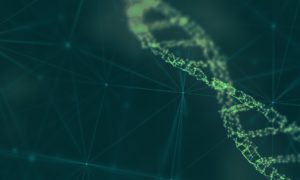
Psychedelics
- Published on 14 October, 2021


Reasons to be cheerful: Part one HIGHER INTEREST RATES Nobody, other than savers, loves high interest rates. They might prop up an ailing currency but
Read More »

OpGen: Leadership in the global fight against the AMR pandemic
24th October 2022
Leadership in the global fight against antimicrobial resistance https://www.youtube.com/watch?v=zZpsSZaSljs Costing the United States an estimated $20bn every year, the fight against so-called ‘superbugs’ has the
Read More »

Volition signs global supply agreement for Nu.Q Vet Cancer Test
24th October 2022
Volition signs global supply agreement for Nu.Q® Vet Cancer Test VolitionRx (NYSE AMERICAN: VNRX) is a multinational epigenetics company that applies its Nucleosomics™ platform through
Read More »
What are psychedelics?
Psychedelics are a class of drugs that induce profound altered states of consciousness. The drugs can change sensory perceptions and thought patterns. There are several well-known psychedelics including LSD, psilocybin, MDMA, DMT and ketamine. Although they are all classified as psychedelics, their effect is markedly different. For example, LSD causes significant hallucinations, MDMA induces extraversion and a positive mood and ketamine has a dissociation effect.What conditions can psychedelics treat?
Studies have shown the utility of psychedelics in treating mental health disorders including major depressive disorder (MDD), anxiety and post-traumatic stress disorder (PTSD). The potential use of psychedelics doesn’t stop at mental health. Research indicates that these drugs can also treat various forms of chronic pain and substance use disorders.How do psychedelics work?
Studies have shown that psychedelics disrupt the default mode network (DMN). The DMN is the region of the brain that governs our overall sense of self, how we think about others and how we comprehend past events or consider the future. Psychedelics temporarily turn off the majority of the DMN. While the DMN is shut down, new neural connections can be formed before the brain reorganises itself. This can allow patients to break out of negative and recurring thought patterns. Additionally, the transient state induced by psychedelics can give patients the ability to process their emotions and memories.What progress has been made with ketamine?
Ketamine was introduced in the 1970s as a general anaesthetic but is being investigated for a range of other indications, by several companies. A recent notable success was Johnson & Johnson/Janssen’s Spravato (esketamine), which was approved by the US FDA in March 2019 for treatment-resistant depression and subsequently expanded for MDD with acute suicidal ideation in August 2020. Spravato is the S-enantiomer of ketamine (an enantiomer is one of two compounds that are mirror images of each other). Consensus forecasts that sales of Spravato will reach $1bn by 2026 (source: EvaluatePharma). Perception Neuroscience, an atai Life Sciences company, is studying the effects of Arketmaine, the R-enantiomer of ketamine (and mirror image of esketamine), on MDD. Arketamine is in Phase II clinical trials following Phase I results which indicated that it has antidepressant effects, with a rapid onset of action. This is a beneficial attribute, as typical antidepressants take weeks to become effective. Seelos Therapeutics focuses on clinical-stage therapies to treat unmet needs in rare disorders and the central nervous system. Its ketamine programme (SLS-002) is in Phase II clinical trials for the treatment of acute suicidal ideation in patients with MDD. Early data show promising results, with SLS-002, demonstrating a reduction in suicidality against the baseline in all four of the scales used.What progress has been made with psilocybin?
Psilocybin is a naturally occurring compound, produced by more than 100 mushrooms species, most notably in magic mushrooms. The compound was first synthesised in 1958 but, because of its hallucinogenic properties, psilocybin has been strictly regulated. The regulations and subsequent lack of funding have prevented widespread clinical studies until recently. In early trials, David Nutt’s research group has shown that psilocybin can be as effective as escitalopram (the standard treatment) at treating MDD. Several companies are exploring the use of psilocybin for various indications. Cybin focuses on psilocybin derivatives, innovative drug delivery systems and software to improve patient outcomes. It has developed a proprietary sublingual (under the tongue) film delivery system for psilocybin. This formulation, CYB001, is currently in Phase IIb trials for the treatment of MDD. Tryp Therapeutics is focused on developing psilocybin-based treatments for indications outside of depressive disorders. Its drugs are provided in tandem with psychotherapy, and aim to treat fibromyalgia, phantom limb pain, complex regional pain syndrome and binge eating disorder. Its non-proprietary compound TRP-8802 is expected to begin Phase II clinical trials for the treatment of binge eating disorder in Q421. Tryp Therapeutics also expects that its proprietary psilocybin-based formulation, TRP-8803, will enter clinical trials soon after.Other areas of progress
Other psychedelics can be effective in treating mental health disorders; for example, MDMA assisted therapy has been shown to be efficacious in the treatment of PTSD. atai Life Sciences and its subsidiaries are working on psychedelics to treat many of these indications. EmpathBio developed an MDMA derivative (EMP-01) that is in Phase I clinical trials for the treatment of PTSD; DemeRX has DMX (DMX-1002) in Phase I clinical trials for the treatment of opioid use disorder; and Viridia Life Sciences is in the pre-clinical stage of testing DMT (VLS-01) for the treatment of MDD.Subscribe to our Healthcare Related Content




